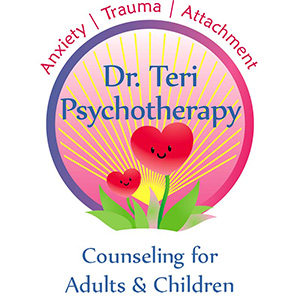19 Ways to Emotionally Survive COVID-19
When you were ringing in 2020 on NY Eve, had you even dreamed that in several months we would see cancellations of all major sporting events, closures of PK-college classrooms, churches, wineries/bars, eating in restaurants and now ordered to stay home……you might have thought it was about a fictional movie or book.
Most everyone is still trying to gain their footing and wrap their heads around this new reality.
Consider some of these ways to manage your anxiety during this current rough season.

#1. Acknowledge That What is Happening Now is Unbelievable and Unprecedented.
This is likely a once-in-a-lifetime event and some people’s yet unborn children will still be using the toilet paper being hoarded now. Know that a global pandemic is not a usual occurrence. It is normal to feel uneasy. Allow for your feelings and allow for the reality of the situation.
#2. High Anxiety is Worldwide. You are Not Alone!
Be aware that anxiety comes from worrying about the future and not feeling in control right now. When we feel helpless, we often don’t feel safe. Recognize that we are all in this together. Do the things you CAN do that you can control: (e.g. wash your hands like a surgeon, stay home, be positive, take care of friends and family…and YOURSELF).
#3. Notice Your Thoughts (Perhaps they’re something like, what the HECK is happening???)
No matter how scared you might be, if you allow negative thoughts to run rampant first thing in the morning, you set up your day for high anxiety. Don’t start a cycle of feeling anxious then get filled with dread, then rumination and negative thinking. Notice how your mood is affected right now because you are probably on high alert to what is threatening your normal routine and downtime.
Adopt the habit of observation. When you separate yourself from your thoughts and simply notice them with detachment, you remove some of the power they have over your emotions.
#4. Practice a Daily Breathing Exercise
Practicing mindful, focused breathing, even a few minutes a day reduces stress and promotes relaxation. Slow, deep, rhythmic breathing causes a reflex stimulation of the parasympathetic nervous system, which results in a reduction in the heart rate and relaxation of the muscles. (Learn to improve your breathing and lung capacity.)
When you practice deep, slow breathing, you’ll feel less anxious, because your lungs will send a message through your Vagus nerve to your brain that all is well. Practice breathing ‘In’ for a count of six, and breathing ‘Out’ for a count of six, for one full minute or more.
Use a breathing/relaxation App like CALM. Check out how a former monk suggests you breathe in this simple breathing exercise:
#5. Establish and Maintain a Routine
When you suddenly discover you are working from home AND have become an unexpected teacher of your children, plan ways to keep the kids busy. Check out “Keeping Kids Busy on Pinterest”.
Check out the Red Cross Safety and Readiness Guide here, and share your readiness plan with your family.
#6. Practice Gratitude / Count your Blessings
When we begin the day with gratitude, we train our minds to look for the positive rather than focusing on the challenges, frustrations, and slights we have encountered throughout the week.
The key to making this habit effective is not the number of things you feel grateful for or even the amount of time you spend in gratitude, but rather the intensity of focus and feeling you have around the effort.
A mindful gratitude practice means immersing yourself in the emotion so that you feel deeply and profoundly blessed.
#7. Recognize What is in Your Control and What is Not
There are things you can do, and it’s helpful to focus on those. Wash your hands. Remind others to wash theirs. Take your vitamins. Limit your consumption of news. Our brains get very overwhelmed in situations that are out of our control and have uncertain outcomes. Comfort yourself by controlling what you can. Be sure to wash your hands. (Wait, I already said that).
#8. Pay Attention to Your Body & Notice What Comforts You
Our brains and our bodies are intricately connected. We feel better emotionally when we feel physically rested. Do what you need to feel safe and secure.
Find ways to self-soothe yourself and be ok with staying home and practicing social distancing. Consider filling your life with positive music.
Check out this Playlist of Hope on Spotify
Consider doing a Mindful Body Scan
The simplest way to get in touch with how you’re feeling is to do a mindful body scan. A body scan is a meditative practice in which you focus on each part of every area. Begin with the top of your head – bringing all your focus there. Then move down and scan your body until you reach the tips of your toes.
The key here is to train your attention on each specific part for a moment and pay close attention to how you feel.
#9. Practice Using Grace
Grace is giving something to someone that they DO NOT deserve. My favorite example is when another car almost runs you off the road. You don’t know what the driver is thinking or where they are going. You have two choices in this moment: 1-Get angry & shout mean things to them or 2-Consider they may have an emergency, gotten bad news, etc. and in THIS moment you GIVE THEM GRACE. They do not deserve this. But YOU deserve this. You deserve to adopt this mindset where you can let go of this situation that upset you.
#10. Practice Shower Meditation (Hey, it’s the only place you can escape from your family)
For most people, a shower is already part of their morning routine. But when you add a quick meditation session to this ritual, you can focus on practicing deep thinking and creating positive thoughts for the day.
Sure, shower meditation might sound silly, but look it this way: You know how you often get your best thoughts in the shower? Well, the same principle applies here. The calming effect of warm water puts your mind on autopilot, which frees it up to come up with inspirational ideas.
Shower meditation is a great mindfulness exercise because it doesn’t require you to do anything new, just do the same stuff differently. In a more thoughtful and mindful manner.
Then check out these Emergency Calm Meditations and this Emotions Series
#11. Practice Mindfulness. (Or finally figure out what people are talking about when they use this term)
Perhaps you are not only thinking about what is currently happening, but also projecting into the future. When you find yourself worrying about something that hasn’t happened, gently bring yourself back to the present moment. Notice the sights, sounds, tastes and other sensory experiences in your immediate moment and name them. Practice 5-4-3-2-1: Name aloud 5 things you can see, 4 things you can hear, 3 things you can touch, 2 things you can smell and 1 thing you can taste. This will help ground you in the present.
When we bring our mind into the present, and stop ruminating about the future or the past (what has gone wrong and what could go wrong) we realize that we’re ok. Make sure your mind is where your body is. Use a mantra if that’s helpful – “This too shall pass.”
#12. Drink Plenty of Water & Eat Healthy
Drinking water is another habit like the mindfulness exercise above. It is nothing new, it is just about taking the time to do a normal good habit in a more mindful manner.
There are so many health benefits to drinking a glass of water first thing in the morning. Your body has been without hydration for seven to eight hours, so it needs water to rehydrate—especially if you’re going to follow up your water with a cup of caffeinated coffee or tea. Try adding some lemon because it brings your body back to an alkaline state.
Drinking a large cool glass of water after you wake also fires up your metabolism by 24% for ninety minutes according to a research study. It also increases mental and physical performance during the day. When you’re dehydrated, you can feel tired and drained, and you may experience headaches and mood fluctuations.
#13. Smile in the Mirror
Does that seem ridiculous? It might feel that way when you first practice it (especially if someone walks in on you). But smiling at yourself in the mirror first thing in the morning has many positive benefits for your well-being.
In fact, British research scientists concluded that “smiling can be as stimulating as receiving up to 16,000 Pounds Sterling in cash.”
Smiling slows the heart and relaxes the body, and it releases endorphins that counteract and diminish stress hormones. It also has been shown to increase productivity while a person performs tasks.
#14. Write in a Journal (or with “Morning Pages”)
In her book The Artist’s Way, Julia Cameron invites readers to begin each day with what she calls “Morning Pages.” As Cameron explains on her blog,
Morning Pages are three pages of longhand, stream of consciousness writing, done first thing in the morning. There is no wrong way to do Morning Pages – they are not high art. They are not even “writing.” They are about anything and everything that crosses your mind – and they are for your eyes only. Morning Pages provoke, clarify, comfort, cajole, prioritize and synchronize the day at hand.
Working through Morning Pages for ten minutes is an excellent mindfulness habit because you completely focus on putting your thoughts onto paper. It’s a way to liberate your mind from the mental chatter that can set your morning off to a negative or anxious start.
#15. Read Inspirational Content
Rather than beginning your day with information overload, like checking your email or turning on the television, you can choose to read uplifting, inspiring, and positive books, articles or the Bible.
An important part of being a mindful person includes challenging your own beliefs and assumptions and reading the ideas and perspectives of others in order to stretch yourself. This requires a proactive decision to read books that uplift and educate you and support your values, goals, and passions.
#16. Develop/Visualize an Affirmation
An affirmation is a positive statement that will help you overcome self-sabotaging, negative thoughts. Negative thoughts can become self-fulfilling prophecies because we can talk ourselves into believing that we’re not good enough.
An affirmation/intention gives you a sense of purpose, as well as the inspiration and motivation to achieve that purpose. This RESEARCH shows self-affirmations activate the brain systems associated with self-related processing helping key pathways that can decrease stress and increase well-being.
#17. Understand What Brings You Joy
Name TWO things you love that bring you joy. Are you routinely doing these things? If you find you have more time because you are at home now, consider changing your routine and DOING what brings you joy. Maybe that is painting, or an old hobby you haven’t thought about in years.
#18. Maintain Balance
Even in the most challenging times, we can find a few aspects of our lives that are going well. It is important to focus on the good in times of struggle. If you realize you haven’t laughed or smiled in a while, watch a funny TV show or call a friend who makes you laugh, and remember that the world isn’t all bad. Sometimes, even in the midst of crisis, we can find silver linings. But don’t overexpose yourself to the news.
Repeatedly viewing or listening to the same scary story can really push your nervous system into full panic mode. Schedule just a few times a day to turn on the news or look at the internet, for about 20 minutes at a time. Set a timer to keep yourself from fixating on the scary stuff.
#19. While Practicing Social Distancing, Don’t Socially Isolate ~ Stay Connected
We are biologically wired to connect with one another, and there is real healing power in connecting with other people who are struggling in similar ways. Even though you may not want to (and should NOT right now) spend time with big groups or see people in person, make sure you’re not isolating more than necessary. Find ways to connect with friends via Facebook, Zoom, FaceTime or other video App.
Connect With My Professional Social Sites for Inspiration:
Google Site | Facebook | Twitter | Pinterest | Instagram | Yelp


Thank you Dr Teri for this beautiful list of thoughtful reminders during this time!
So happy these ideas and reminders are useful to you. Sending blessings your way.